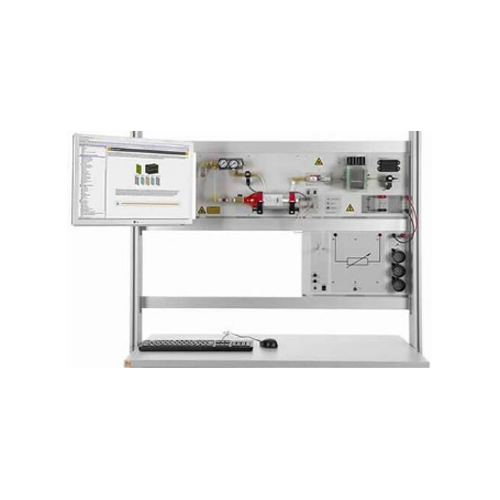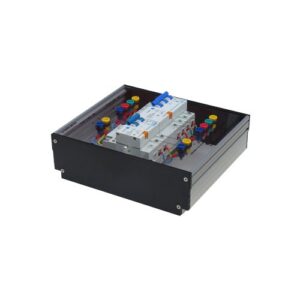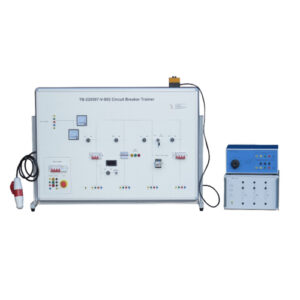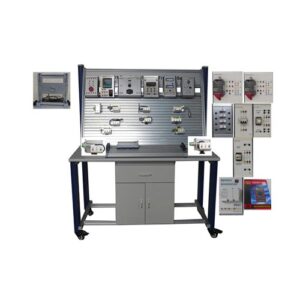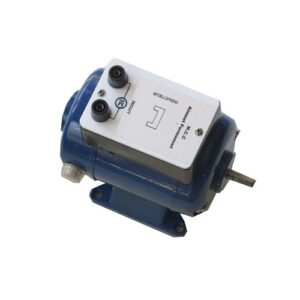TB-230222R-005 Mobile Teaching Bench On Fuel Cell Technology Electrical Training Equipment
Description
Fuel cells are energy converters that, unlike heat engines, convert chemical energy directly into electrical energy. Heat is generated as a by-product during this process.
The main component of it, is a polymer-membrane fuel cell which is operated in combined heat and power generation. The system is supplied with high-purity hydrogen from a pressure vessel on the anode side and with oxygen from the ambient air on the cathode side. The fuel cell is operated either current- regulated or voltage-regulated via an integrated electronic load. The set value of the electronic load allows a precise adjustment of all operating points and a very accurate recording of characteristics. The technically usable thermal energy is dissipated to the environment via a cooling circuit and can be accounted for via the integrated instrumentation. The water accruing during operation is collected in a water separator. In the fuel cell’s dead-end mode the accruing water is disposed of via a configurable purge valve for hydrogen. The system is operated via a PC.
Auxiliary energy for pump, fan and control required for operation is provided from the mains. The moisture in the stack can be regulated via adjustement of the purge valve, so that no external humidification is required. All relevant measuring values are recorded to work out the fuel cell’s energy balance. The measured values are transmitted directly to a PC via USB. The data acquisition software is included.
Didactic objectives
The production of electrical energy using fuel cells continues to develop into an important field with diverse application potential in electrical engineering and automotive technology. The educational panel system provides a safe environment for experimentation with hydrogen and fuel cells. It also allows for interesting research and is ideally suited for practical laboratory work and demonstrations. Animated theory, experimental guidelines and information, including results, are provided by the “Interactive Laboratory Assistant”.
– Design and operation of a fuel cell
– Design and operation of an electrolyser
– Design and operation of a metal hydride storage cell
– Fuel cell thermodynamics
– Fuel cell characteristics and power curves
– Efficiency
– Systems required for stand-alone power supply
– Power electronics and voltage conversion
Components
– Fuel cell with DC converter
– 200W/20V/10A electronic load
– Metal Hydride Storage Cell with Solenoid Valve
– Interactive Laboratory Assistant: Fuel Cell Technology – Advanced Course
– 4mm safety plug with socket (2x), black, 1000V/32A CAT II
– Safety test lead 4mm, 50cm/20″, red, 600V CAT III ~ 1000V, CAT II / 32A
– Safety test lead 4mm, 50cm/20″, black, 600V CAT III ~1000V CAT II / 32A
– Mobile aluminium experiment stand, 3 levels, multi-socket with 6 sockets, 49 “x28 “x79” WxDxH (1250x700x1995mm)
– Monitor stand for flat screen monitors up to 15kg/33lbs
– Keyboard adapter for flat screen monitor stand
– Screen for fuel cell equipment
– Protective cover for three-tiered experimental trolleys
– 2 Metrix type multimeters (Adequat with bench voltage range)
– A Computer configured with all the necessary software for the commissioning of the equipment

